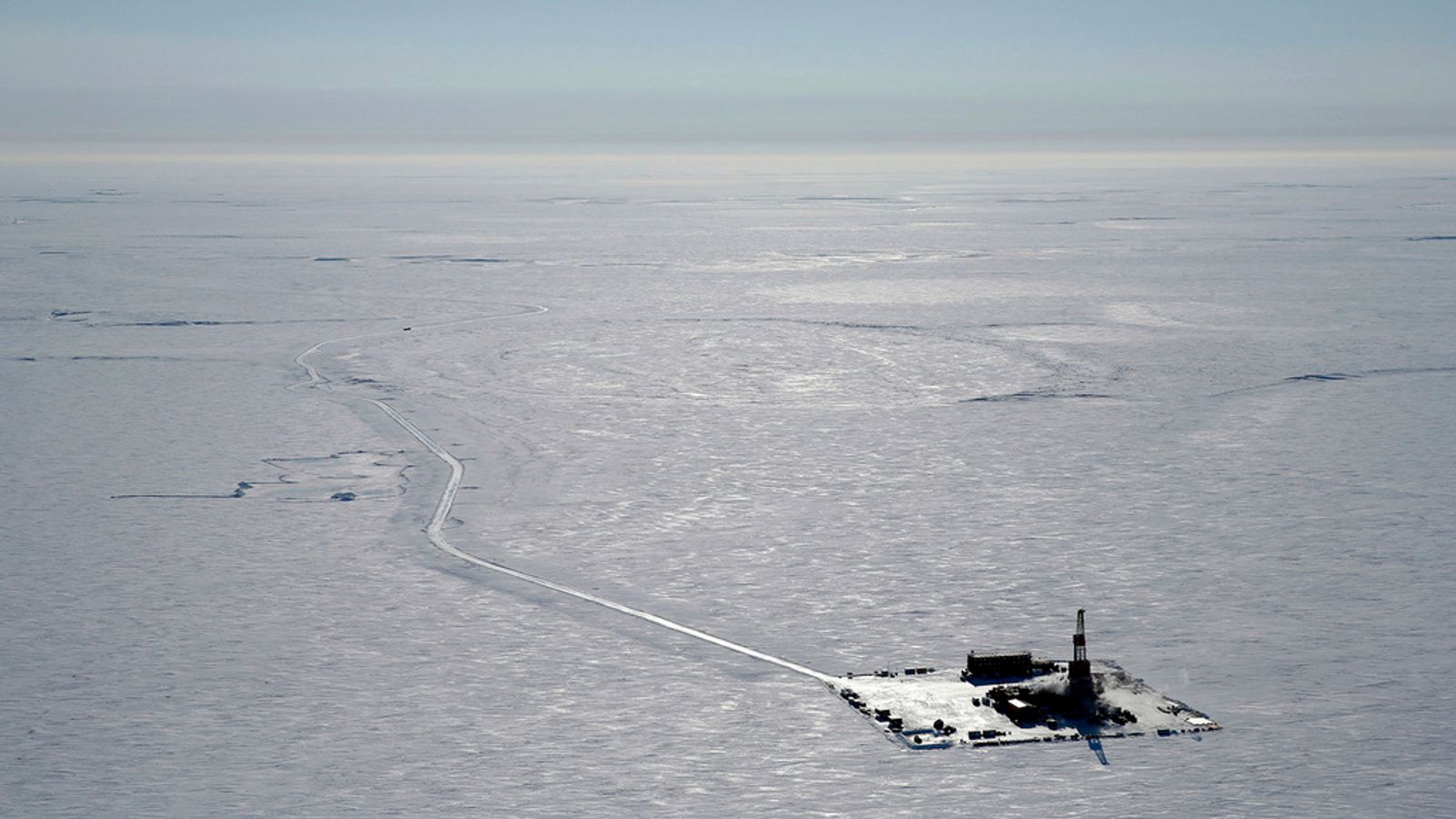Joe Biden’s administration will approve a scaled-back version of a controversial $7bn oil and gas drilling project.
The move comes despite criticism from environmentalists who say the development of the three drill sites in northwestern Alaska conflicts with Mr Biden’s highly-publicised efforts to fight climate change.
The US president has also pledged to shift to cleaner sources of energy.
The administration’s decision is not likely to be the last word, with litigation expected from environmental groups.
However, the project, located in the federal government-owned National Petroleum Reserve-Alaska, enjoys widespread political support in the state.
Mr Biden has been seeking to balance his goals of decarbonising the US economy with calls to increase domestic fuel supplies to keep prices low.
Houston-based crude oil producer ConocoPhillips had sought to build up to five drill sites, dozens of miles of roads, seven bridges and pipelines as part of the major Willow oil project.
The project could produce up to 180,000 barrels of oil a day, create up to 2,500 jobs during construction and 300 long-term jobs, as well as generate billions of dollars in royalties and tax revenues for the federal, state and local governments, the company has said
The US department of the interior approved the project with three, rather than five, drill pads after saying last month that it was concerned about the greenhouse gas impacts of Willow.
Its bureau of land management’s “preferred alternative” also includes less surface infrastructure than originally proposed.
The department said on Monday its reduction of ConocoPhillips’ proposal by two drill pads would reduce the project’s freshwater use and prevent the development of 11 miles of roads, 20 miles of pipelines, and 133 acres of gravel.
ConocoPhillips and Alaska-elected officials endorsed that version of the project, which the agency has said would reduce the impact on habitats for species such as polar bears and yellow-billed loons.
Read more:
Wales gives green light to first floating wind farm
Proposed ‘Hydrogen Village’ which could see homes swap gas for hydrogen
Click to subscribe to ClimateCast with Tom Heap wherever you get your podcasts
The decision comes after the Biden administration on Sunday announced new protections for Alaskan land and water.
It said it would make nearly three million acres of the Beaufort Sea in the Arctic Ocean “indefinitely off limits” for oil and gas leasing, building on an Obama-era ban and effectively closing off US Arctic waters to oil exploration and issued protections for 13 million acres of “ecologically sensitive” special areas within Alaska’s petroleum reserve.
Environmental groups criticised the Biden administration, saying it was trying to have it “both ways” on climate change.
“Promoting clean energy development is meaningless if we continue to allow corporations to plunder and pollute as they wish,” Wenonah Hauter, executive director of Food & Water Watch, said.

